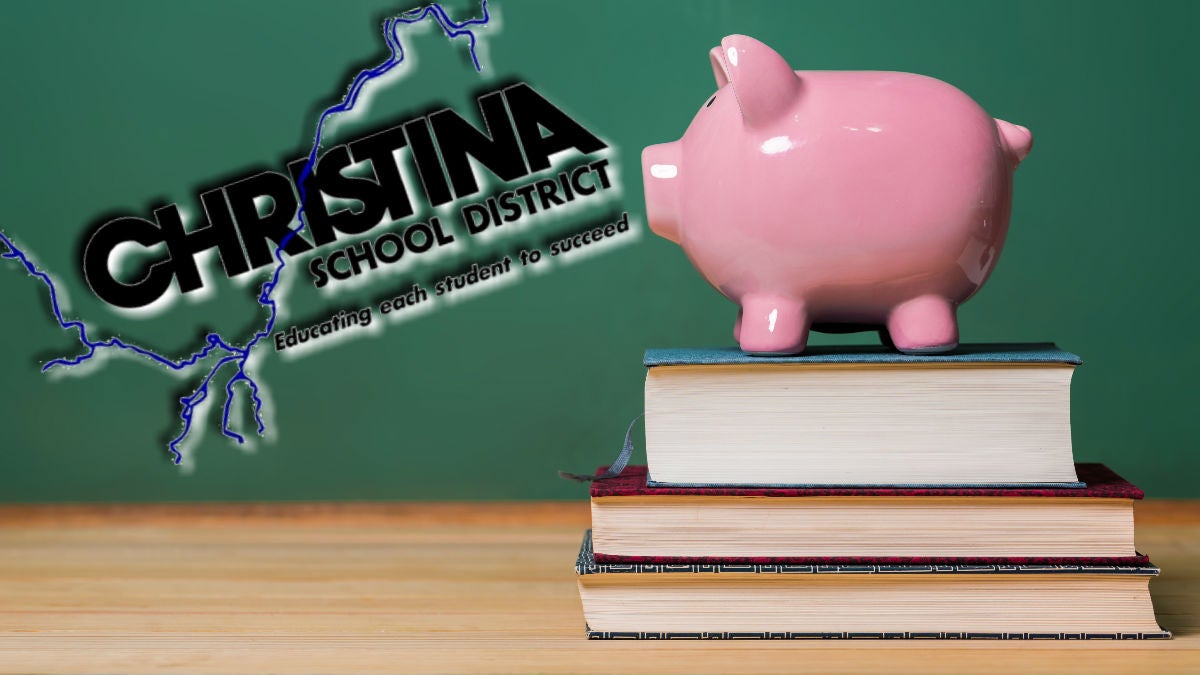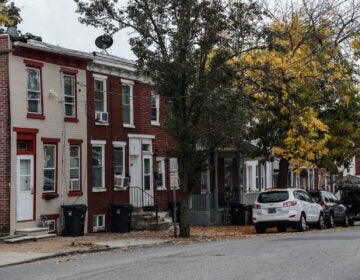A year later, still no money for three Delaware ‘priority’ schools
 Chalk board photo via ShutterStock) " title="christina-piggy-bank-169" width="1" height="1"/>
Chalk board photo via ShutterStock) " title="christina-piggy-bank-169" width="1" height="1"/>
(Chalk board photo via ShutterStock)
Three of Delaware’s lowest performing schools have yet to receive more than half a million dollars set aside by the state to help turn them around.
Instead, Bancroft Elementary School, Stubbs Elementary School, and Bayard Middle School–all located in Wilmington and all serving majority low-income, African-American populations–are making do in a district strapped for cash. Each is eligible for an additional $175,000 in state funds. None of the schools has gotten a cent.
It’s difficult to ascertain exactly why. But both state and district blame miscommunications caused by bureaucratic churn. In essence, the money has been sitting on the table–but no one has asked for it.
The issue surfaced publicly during last Thursday’s State Board of Education Meeting. In the middle of a presentation, board president Terri Quinn Gray grew so upset she rose from her chair and blurted, “I need to take a break.”
She meant it literally. Gray grimaced, clutched her stomach, and walked out of the board meeting.
The source of Gray’s discontent wasn’t charter schools or testing or redistricting in Wilmington. It was priority schools.
Remember those?
In September 2014, Delaware announced it would provide extra money to help turn around six low-performing schools in Wilmington. Three of these so-called priority schools were in the Red Clay Consolidated School District. The other three–Bancroft Elementary, Stubbs Elementary, and Bayard Middle–were in the Christina School District.
The announcement set off a protracted political battle between Christina and the Delaware Department of Education. Among other sticking points, Christina’s school board demanded that teachers and administrators at the priority schools be guaranteed their jobs through the turnaround process. State officials pushed back. Christina’s board refused to submit priority school plans.
Eventually, the sides reached a compromise: Christina would treat 2015-16 as a planning year and wait for the results of a redistricting plan that could eventually transfer Christina’s priority schools to Red Clay.
That was in the spring.
Nary a peep was heard (or written) about priority schools until Thursday’s board meeting. So, what the heck happened?
In short, very little. Christina’s priority schools have yet to receive extra money from the state and the district has yet to submit interim plans for the three schools. Slated for turnaround more than a year ago, Christina’s priority schools appear to be functioning much the way they were before.
“The expectation was not that Christina schools would have nothing happen,” said Gray in a follow-up interview with NewsWorks/WHYY. “That’s just totally unacceptable.”
Asked to explain why, state and district officials say staff turnover has played a role.
Since the priority schools process started in late 2014, Christina Superintendent Freeman Williams and Delaware Secretary of Education Mark Murphy have left their respective positions. So too have a pair of senior Christina administrators in charge of coordinating priority schools work. Within weeks, Penny Schwinn, the state’s Chief Accountability and Performance Officer and its priority schools point person, will leave the department.
“I absolutely understand with transition there’s a lot of confusion,” said Schwinn. “We want to give them the space to be able to work through that.”
Christina’s priority schools are eligible to receive $175,000 each from the state, said Schwinn, but the money hasn’t been released because the district hasn’t submitted a grant application. The application is a formality, but the state can’t dole out money without it.
“It’s essentially one page,” said Schwinn. “They already have the language. They just need to copy and paste it. It’s a 10-minute process.”
Schwinn reminded district official Kelli Racca to complete the form on October 9, according to an e-mail produced by the Delaware Department of Education. Racca left Christina later that month, according to Acting Superintendent Robert Andrzejewski.
Andrzejewski, who started as acting superintendent on October 1, told NewsWorks/WHYY he didn’t know money was available for the three priority schools until early December. He said the district will submit sub-grant applications for each of the three school before the month ends.
“It kind of surprised all of us when we heard come December that there was money available,” Andrzejewski said.
The district will also be submitting interim turnaround plans for each of the three schools detailing how the money will be spent. Without those plans, the state cannot formally designate the trio as priority schools.
That’s important because the state must designate a certain number of priority schools due to an agreement it signed with the federal government. And it’s not as simple as hanging a sign outside the school that reads “priority.” The schools must have a turnaround plan the federal government considers valid. If they don’t, the state either has to close the schools, convert them to a charter school, or hire an outside management company to run them.
Both sides say plans are forthcoming. Until then, one stubborn fact remains: three of the lowest performing schools in the state aren’t getting needed money and don’t have a formal improvement plans in place. This in a school district undergoing budget cuts after voters rejected multiple referenda that would have raised taxes.
State and district officials say they’re working together and that both want the schools to receive money as soon as possible. As this article was being reported, a Christina spokesperson told NewsWorks/WHYY that grant applications for each of the three schools were sent to the Department of Education on December 23.
“Bottom line is if we can find some resources to help our kids we’re gonna get that done,” Andrzejewski said “We’re not into finger pointing.”
WHYY is your source for fact-based, in-depth journalism and information. As a nonprofit organization, we rely on financial support from readers like you. Please give today.





